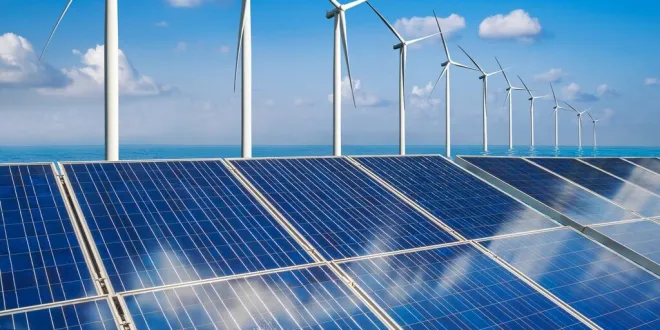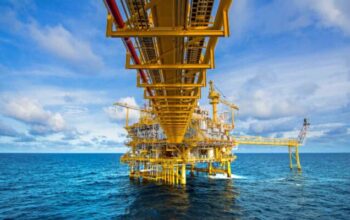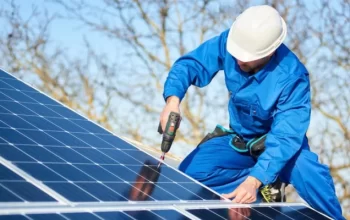Home to 39% of global renewable energy potential, Africa’s green energy sector offers lucrative opportunities for foreign companies and developers looking to diversify their portfolios, in line with COP28 commitments.
For the Middle East, the African continent offers Gulf countries the ability to establish themselves as renewable energy market leaders, while exercising technical expertise and generating returns on investment.
Africa is only beginning to understand the full potential of its renewable energy resources. The African Development Bank estimates the continent’s solar capacity potential to be as high as 10 TW, hydroelectric potential to be 350 GW, and geothermal potential to be 15 GW.
Yet as of 2022, total installed renewable capacity on the continent was just shy of 59 GW. At the upcoming Invest in African Energy (IAE) forum taking place in Paris on May 14–15, 2024, this untapped potential will be explored, with a view to connecting MENA, Europe and Africa’s energy players to advance energy security and climate diplomacy goals.
UAE Leads Investments
Last September, the UAE’s AMEA Power announced plans to construct a 1 GW green hydrogen project in Mombasa, Kenya, utilizing electricity generated from existing geothermal plants.
The renewable energy company has also agreed to develop a 200 MW geothermal project in Uganda; a 300 MW wind farm in Ethiopia; and a solar and battery initiative in Djibouti.
To advance a 1 GW green hydrogen initiative in Mauritania, AMEA Power signed two Memoranda of Understanding during COP28, targeting the development of a 100 MW solar photovoltaic (PV) plant and 100 MW wind farm.
Emirati state-owned renewable energy firm, Masdar, recently inked agreements to develop renewable projects in Uganda with a total capacity of approximately 1 GW.
In Angola, Masdar has signed agreements to develop 150 MW of solar projects in Quipungo, as part of its broader commitment to develop 2 GW of renewable capacity in the country.
Earlier this year, Infinity Power – a joint venture between Masdar and Egypt’s Infinity – acquired a 60% stake in independent power producer Lekela Power, which boasts over 1,300 MW of wind power assets across the African continent, including the 143 MW Khobab, 143 MW Kangnas and 143 MW Loeriesfontein wind farms in South Africa.
The acquisition aligns with the company’s strategic interest in expanding its renewable footprint in Africa. Masdar is also pursuing a partnership with Africa50 to undertake floating solar PV projects in Mozambique, as well as developing 500 MW of renewable capacity in the Republic of the Congo.
Meanwhile, the UAE launched its Etihad 7 program at the start of this year, pledging to deliver clean energy to millions of Africans by 2035.
Sultan Ahmed al-Jaber, COP 28 President-Designate and CEO of Abu Dhabi National Oil Company and Masdar, pledged $4.5 billion to aid African economies in accelerating their green transition, and urged developed nations to fulfill the $100 billion in annual green finance previously committed for developing countries.
While the UAE has been leading renewable energy investment in Africa to date, Saudi Arabia, Qatar and other Gulf nations have stated their interests in accelerating project developments and participating in sustainable economic growth across the continent.
![]()




